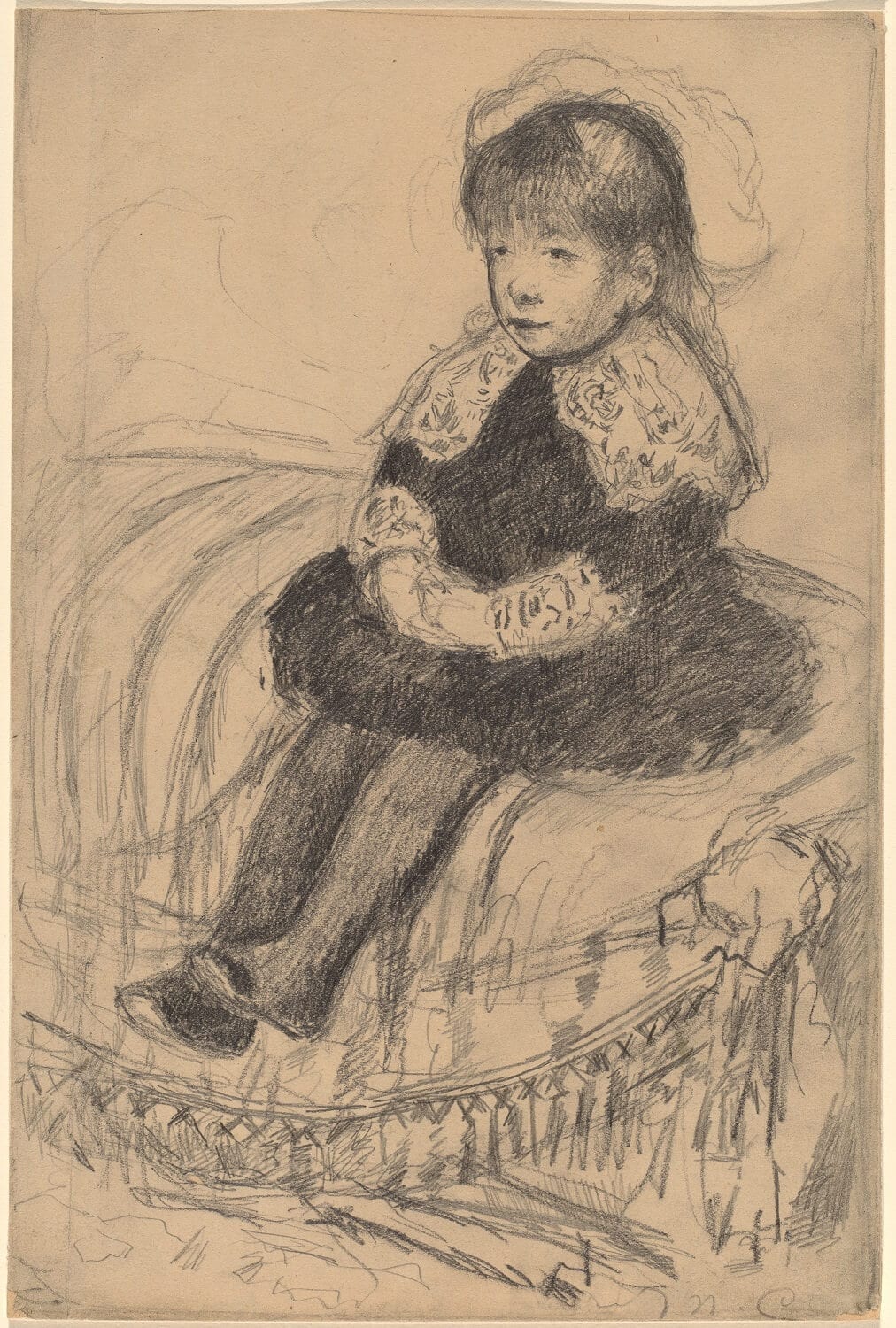Simon Edber
Pittsburgh, Pennsylvania, United States

National Gallery of Art, Ailsa Mellon Bruce Collection
Raven knows exactly how she joined the family: “She didn’t want me so she took me to the hospital, and then you came and bought me from the hospital.” Well, almost exactly. “I didn’t buy you,” Cathy corrects her from across the room, smiling but not daring to laugh. Even leaning on the couch in the sleepy comfort of indirect sunlight, Cathy cannot tear her gaze from her daughter. I may have just met these people, but I can at least tell reverence from mere love.
And there is much to revere about Raven. I had entered the room with some ice-breaking strategies in mind, but when my introduction was interrupted by an invitation to try a piece of her cinnamon cake, the chain of command became clear. An energetic young woman enters the room with a cell phone against her ear and announces, “I’m on the phone with Steve!” Elated, Raven rushes over, and the woman relinquishes the device as she begins to chat with Cathy. Raven enters negotiations, insisting that Steve cut his other visit short to come see her. If Steve has any power whatsoever in this relationship, it is because Raven is not quite five years old.
“She’s always been like this. She’ll talk to anyone,” Cathy offers in an attempt to intercept my bewilderment. There is pride in her voice, but also uneasiness. “I’ll turn around at Walmart and there she is, talking to some stranger. She doesn’t get it that some people don’t want to talk. Some people it’s bad to talk to. I put her on a leash on Halloween—I don’t care if I get looks.” Cathy’s fear of losing her daughter might strike me as more paranoia than good parenting were it not for the fact that we are having this conversation beside Raven’s bed at a children’s hospital.
Two weeks ago Raven was diagnosed with B-cell acute lymphoblastic leukemia with central nervous system involvement. Cathy had brought her to the emergency room with worsening chills, fatigue, excessive bruising, and purple splotches under her eye. After some blood tests the symptoms made sense, and the doctors carefully explained to Cathy how life was about to change. Cathy made sure they told Raven, too.
Raven knows far too much for a four-year-old. As Cathy opens up to me about their journey through hell that is only beginning, I realize that Raven’s level of understanding might be perfect for a four-year-old with cancer. “I tell her everything. I don’t pull punches with her.” Before I can press further, Cathy elaborates, “When they were going to put the port in I showed her a video of how they do it. I may as well; she’s too smart.” As if pleading for my approval she continues, “I had to show her the kids here without hair. That way she gets that it’s okay. She knows it’s ‘just until the bad cells are gone.’”
Steve, who I learn is one of the hospital’s “child life specialists,” arrives at last. That means it is time for Raven’s yoga, and after only minimal debate he whisks her away to another room. Left alone with Cathy, I ask how exactly the diagnosis changes things. Cathy rattles off details about Raven’s prolonged chemotherapy, weeks spent in the hospital, stipulation to wear a helmet during physical activities, banishment from the germy paradise of the sandbox, and delay of an entire school year. As I wonder how Cathy knows it will be only one school year, I catch the same question in her eyes and drop the subject.
For all they are up against, I cannot help but fixate on a few favorable aspects of Cathy and Raven’s harrowing situation. For one thing, the hospital has an excellent reputation and Cathy and Raven are each impressed by the hospital’s facilities and staff in her own way. Almost as an afterthought, Cathy also mentions that she herself is an oncology nurse. And while it remains uncertain when she will be able to return to work, Cathy expresses confidence that her professional skills will benefit Raven because she knows what to watch for in monitoring her daughter’s symptoms. Most importantly, the two are bonded by a degree of trust I have never observed before, regardless of relationship or age. I say goodbye and leave the door open for Raven, at Cathy’s request.
In the hallway I dream up a blood test that could show the value of this trust in the face of the bad cells that have taken Raven from her life. Of course, the test is already being conducted, though not by blood but through love and trust. Raven has a lot more than medicine on her side. For the second time in her life a mother has brought her to a hospital, and for the second time her mother will take her home.
SIMON EDBER, BA, BS, was born and raised in Sacramento. As an undergraduate at Tulane University in New Orleans, he studied foreign languages and cultures before moving to Pittsburgh to attend medical school. He is a composer and poet, and a passionate proponent of communication skills in healthcare.

Leave a Reply